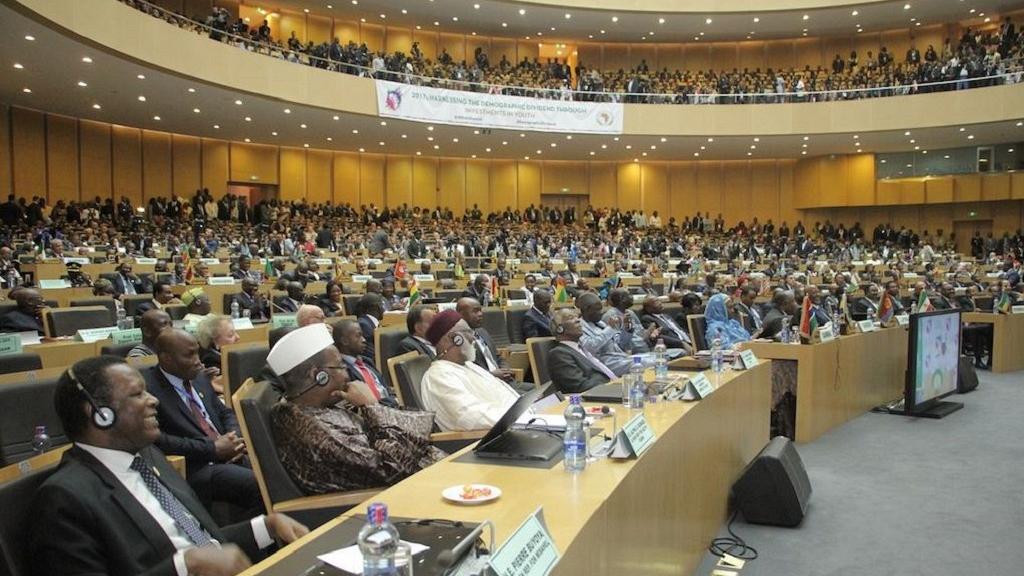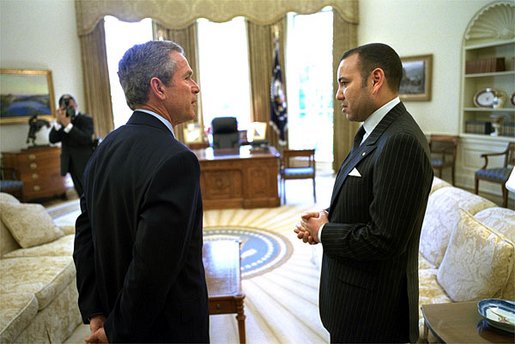Fair Observer
by Ana Cizek
What made 15 African Union members vote against Morocco’s admission?
Nearing the one-year anniversary of Morocco’s admission into the African Union(AU), further interpretations can be made concerning the implications of the AU’s majority 39-15 vote. Following Morocco’s historic withdrawal from the Organization of African Unity more than 30 years ago, King Mohammed VI’s desire to join the AU was seen by many as a step toward pan-Africanism and global governance. Those voting in favor of Morocco accredited their decision to principles of inclusivity and integration throughout the African continent. Loosely modeled after the European Union, the AU has discussed its potential to establish a central bank, a monetary fund and a human rights court.
With all of this in mind, some may ask: Which 15 members voted against Morocco’s admission, and what influenced their decision?
One of the most impactful countries on the African continent to vote against the Kingdom of Morocco’s request for admission was South Africa. Ironically, the reasoning Morocco gave for leaving the Organization of African Unity in 1984 was the same argument given by those opposing its entrance into the AU in 2017: the recognition of Western Sahara. Referred to by some as the Sahrawi Arab Democratic Republic (SADR), Western Sahara has been a controversial territory for over 40 years. As a result, it is not difficult to see why Morocco was disappointed to hear the surprising news that South Africa established diplomatic relations with the so-called Sahrawi Republic and offered those living in Moroccan territory a separate embassy in Pretoria at the expense of cutting ties with its Moroccan ambassador.
The hostility that South Africa has showed toward Morocco is not a common sentiment of African countries. The 39 heads of state that voted in favor of Morocco have acknowledged the value of the kingdom’s readmission. These countries recognize King Mohammed VI’s positive contributions to regional development, including his speech at the state opening of Parliament, the creation of a ministerial department dedicated to African affairs, and the hosting of the 10th World Policy Conference. These actions have demonstrated the resources and effort that the kingdom is willing to invest in regional progress. For example, the World Policy Conference held in Marrakech in November 2017 brought together world leaders to discuss security, development and investment throughout the continent. Morocco’s commitment to the progression of Africa has been made evident through these consistent actions.
Moreover, the fact that the Economic Community of West African States (ECOWAS) responded to the kingdom’s admission request with an invitation to its December meeting in Lomé, Togo, attests to the potential for further cooperation. The regional committee has even overlooked the fact that Morocco is technically not located in West Africa. By disregarding this key geographical detail, it is apparent that the committee sees a significant amount of value in Morocco’s admission. In the first quarter of 2018, the commission will dedicate a specific session to discuss its potential with Moroccan integration.
Countries across the continent have been favorable to Morocco’s readmission into the AU, request to join the ECOWAS and hosting of the World Policy Conference. Consequently, it is reasonable to presume that South Africa’s outlying position has more to do with its political power on the continent and less to do with its concern for Moroccans living in western Morocco. It is ironic to consider a country with the history of South Africa pointing fingers at its northern neighbor over a fabricated moral argument. Furthermore, it is ironic to say the least that a president with the numeric literacy of Jacob Zuma can understand the complexities associated with the annexation of a landmass over 40 years ago. It is more likely the case that South Africa views Morocco’s increasing regional hegemony as a threat.
In fact, Morocco’s ambitions of becoming a pan-African political and economic leader can be seen through its ranking in foreign direct investment (FDI). Morocco is the second leading country on the continent for FDI in sub-Saharan Africa — second to only South Africa. Moreover, from 2008 to 2016, Morocco’s trade with sub-Saharan Africa increased at an average annual rate of 9.1%. It is clear that these statistics make Morocco an influential player in regional trade and development.
Not only has Morocco exhibited an economic impact throughout Africa, but it has held key political positions as well. It can be presumed that South Africa’s political concerns are also associated with Morocco’s history as an African representative on the UN Security Council. In the 70th General Debate, President Zuma called for Security Council reform and stronger representation of the African continent — more specifically stronger South African representation. While South Africa yearns for the power of a permanent seat, Morocco’s increased leadership continues to threaten its political ambitions. South Africa’s self-motivated actions will continue to cause a deeper rift between Rabat and Pretoria at the expense of the continent.
*[Gulf State Analytics is a partner institutionof Fair Observer.]
The views expressed in this article are the author’s own and do not necessarily reflect Fair Observer’s editorial policy.





